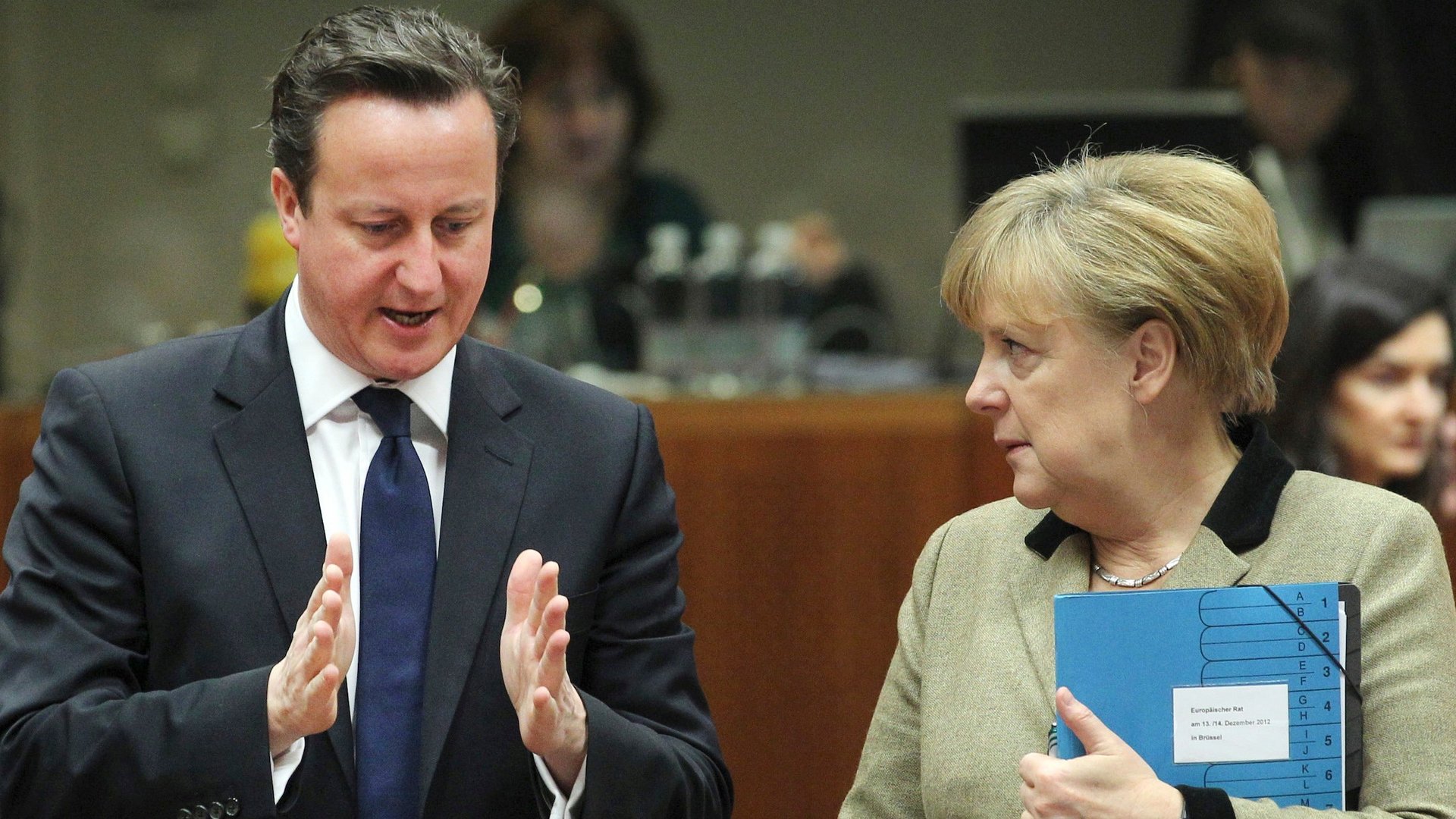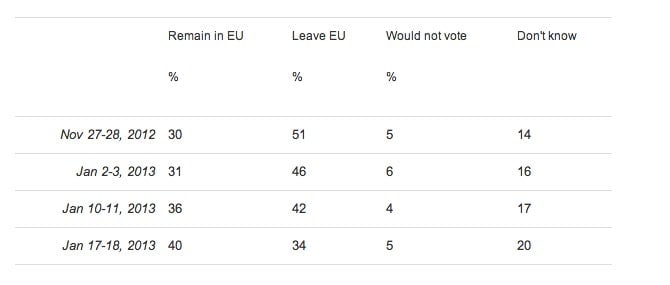Despite myths that the EU exists to ban cleavages and curvy cucumbers, Britons want to stay
British prime minister David Cameron has promised the nation a referendum on whether to stay in the European Union. The vote may not happen until 2017, and perhaps not even then: Cameron’s Conservative party is up for re-election in 2015 and Britain’s other two main parties, the Liberal Democrats and Labour, are fairly pro-Europe.


British prime minister David Cameron has promised the nation a referendum on whether to stay in the European Union. The vote may not happen until 2017, and perhaps not even then: Cameron’s Conservative party is up for re-election in 2015 and Britain’s other two main parties, the Liberal Democrats and Labour, are fairly pro-Europe.
The country’s tabloid newspapers, which love to mock Brussels, are delighted. In 2007, an EU directive that employers should ensure workers’ skin was not dangerously exposed to the sun morphed into a tabloid tale that Brussels was trying to force British barmaids to cover up their cleavages; The Sun newspaper launched a “save our jugs” campaign. Another favorite was the EU rule (dropped in 2008) that banned “abnormal curvature” of bananas. The UK press claimed for years that “crooked cucumbers” had been outlawed too, all facts to the contrary.
But the view in Berlin, according to Channel 4 economics reporter Faisal Islam, is that Cameron is probably bluffing. Britain’s normally Euro-skeptic Daily Mail concurs that Cameron is really just bargaining with the EU, and that his referendum threat is an “ultimatum” to Brussels, a way of “warning other EU countries that we are heading for the exit door unless they hand back key powers.”
Among those powers, the Mail says, are rights for states to opt out of EU rules on financial services —a key concern for the City of London, which does well out of being something of an offshore tax haven for Europe. Cameron also wants out from the EU’s Working Time Directive, which limits working hours and upsets Britons from company bosses to doctors. Another bone of contention (and not just for Britain) is how the European Stability Mechanism, the bailout fund established last autumn, should work: EU finance ministers have clashed over whether Brussels should be able to dole out cash to ailing banks directly, bypassing the autonomy of states to decide which of their failed lenders deserve cash, and how much.
What’s more, Cameron announced the referendum knowing full well that Britons would probably vote to stay in the EU anyway. This survey, conducted by YouGov, showed that as media coverage has made the prospect of an EU exit seem more real, its attractiveness has dropped; now, for the first time in the current parliament, more Britons want to stay in the EU than leave it (see table below). It makes you wonder which side the tabloids are really on.
